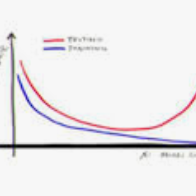The NLP community typically relies on performance of a model on a held-out test set to assess generalization. Performance drops observed in datasets outside of official test sets are generally attributed to "out-of-distribution'' effects. Here, we explore the foundations of generalizability and study the various factors that affect it, articulating generalizability lessons from clinical studies. In clinical research generalizability depends on (a) internal validity of experiments to ensure controlled measurement of cause and effect, and (b) external validity or transportability of the results to the wider population. We present the need to ensure internal validity when building machine learning models in natural language processing, especially where results may be impacted by spurious correlations in the data. We demonstrate how spurious factors, such as the distance between entities in relation extraction tasks, can affect model internal validity and in turn adversely impact generalization. We also offer guidance on how to analyze generalization failures.
翻译:暂无翻译




